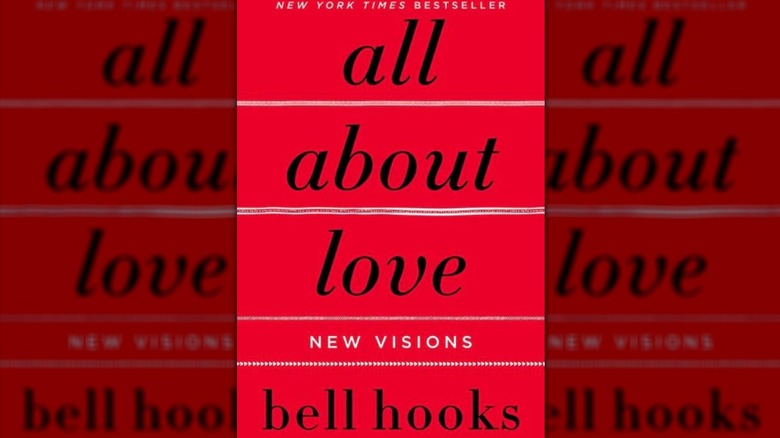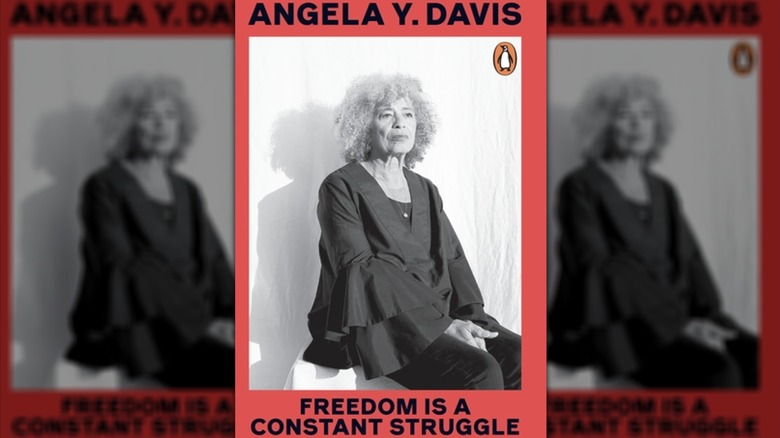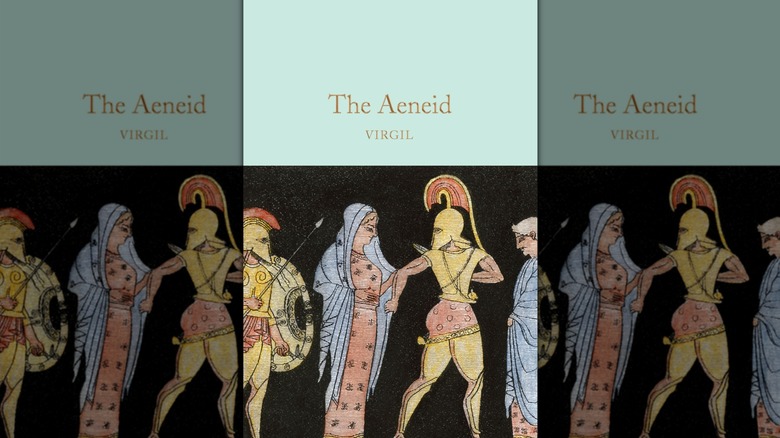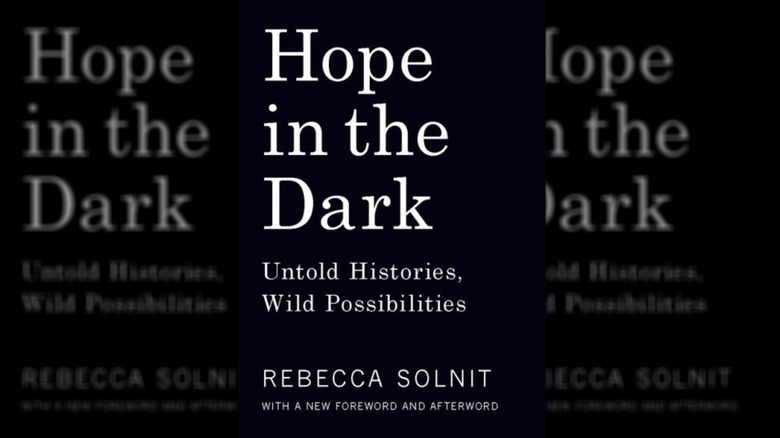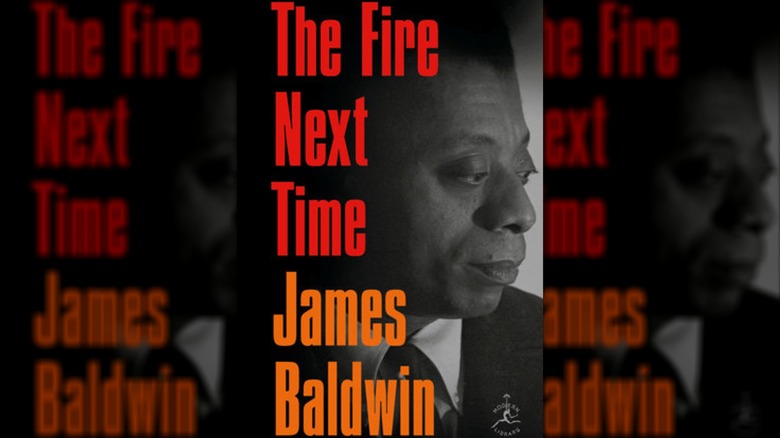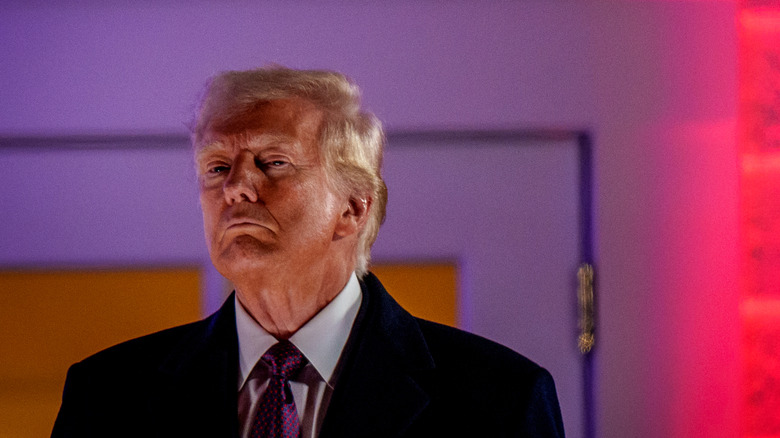5 Of The Best Books To Read To Cope With The Second Trump Administration
Donald Trump has been sworn in for a second term as president, and with it, a fresh wave of political strife threatening us all with an atmosphere of anxiety. On his first day alone, he signed 26 directives, addressing everything from immigration and gender policy to withdrawing from the World Health Organization and pardoning those involved in the January 6th insurrection. We can see this is an administration intent on undermining the progress of the past.
The daunting scale of everything is hard to absorb, and the burden of what's transpired might feel overwhelming. But amid the tumult and pain, there are books. Some offer a moment of calm, others will reignite your sense of purpose or inspire action. Whatever you need at this moment, literature holds the potential to provide the insight and resolve to carry us through.
Within the first month of Trump's second term, the administration had already made strides toward supporting book bans across the country. They know that our pens are our power. As George Orwell once said, "Power is in tearing human minds to pieces and putting them together again in new shapes of your own choosing." Reading is how we protect ourselves and is also a method with which we fight back.
All About Love by Bell Hooks
By now, Bell Hooks's magnum opus has become a staple of many bookshelves worldwide, and this is no accident. "All About Love" has become a fixture because Hooks can articulate what so many of us long for but cannot name — an authentic, actionable framework for love in a society that has largely failed to provide it. Hooks's dissection of love teaches us how to offer our hearts — both to those around us and to ourselves — in the right way. As she reveals, it's a lesson many of us have unwittingly overlooked or were never taught to truly comprehend.
Love is not, as Hooks illuminates, an abstract ideal. It's a practical, lived experience that can offer hope and meaning in these trying times. When so much of today's political rhetoric and operation seems designed to keep us disconnected — with feelings of alienation increasingly becoming the norm — such true, unadulterated love can indeed feel like a radical act. "All About Love" strikes right at the heart of this political paralysis. In embracing love, we not only resist the systems of power that divide us, but we also create the conditions for a true community rooted in empathy, understanding, and mutual care. Bell Hooks can show you how; we can't afford to wait any longer.
Freedom is a Constant Struggle by Angela Y. Davis
Angela Davis leads by example. Her lifelong work as an activist, scholar, and freedom fighter has reshaped how we understand the enduring fight for liberation across generations. As the realities of a second Trump term settle in, "Freedom is a Constant Struggle" stakes its claim as both an incisive analysis of oppression — to unpack the origins of our present crisis — and a pressing call to action for those refusing to stand idly by as freedom is systematically eroded.
We must resist complacency and despair. This stirring synthesis of Davis's speeches, essays, and interviews distills decades of activism into an urgent manifesto against oppression in all its permutations. Global injustice, as she demonstrates throughout, shares a common architecture. But just as Trumpism 2.0 reflects a broader system of interconnected subjugation, so, too, are we connected in our ability to resist. In our collective action and understanding, Davis can help us to find not only power but the potential to reimagine liberation itself.
Individual actions, whilst important, are insufficient on their own in the face of systemic challenges — and we must resist complacency. In this vein, this book is essential for anyone left searching for ways to transform fear into fuel. After all, history's pendulum is shaped not by resignation, but by the hands that push it forward.
The Aeneid by Virgil
As the far-right continues appropriating the classical world to serve its political agenda, things have become too blatant to ignore. So-called "red-pilled" movements borrowed symbols of ancient Greece and Rome, transforming them into emblems of Western dominance. Republican politicians, too, have seized on classical education as a remedy to the wokeism they claim dominates public schools — attesting it will protect American freedom. In this way, we see echoes of 1940s Germany, where the classical world was hijacked to legitimize a sinister ideological vision.
But the classics are not the property of the far right; they hold a deeper, universal value that is worth fighting for. Consider Donna Zuckerberg, the far more fascinating sister of Facebook founder Mark Zuckerberg. A feminist classics scholar, she penned "Not All Dead White Men," a searing critique of how the far-right distorts the ancient world to further misogyny and racism — an argument especially timely as Mark Zuckerberg continues to court Trump's base. Elsewhere, Emily Wilson has redefined classical literature with her feminist translations of "The Odyssey" and "The Iliad," dismantling the dusty, exclusionary narrative that has historically accompanied them.
In moments of upheaval, like now, Virgil's "Aeneid" offers a fitting lens. Written during the tumultuous rise of the Roman Empire, the Trojan hero "Aeneas" is tasked with founding a new homeland. His unyielding resilience in the face of unimaginable hardship offers the inspiration we need as we face the years ahead. Even in the darkest hours, perseverance can lead to renewal.
Hope in the Dark by Rebecca Solnit
Few would blame anyone for feeling pessimistic and powerless as the nation braces for another four years under Donald Trump. When policies erode civil liberties and social progress seems under siege, despondency can easily creep in. But in this essay collection, Rebecca Solnit — one of the most imperative feminist thinkers of our time — refuses to see despair take root.
Originally written in response to the despair of the Bush administration and the Iraq War, "Hope in the Dark" was revisited publicly by Solnit during Trump's first campaign. Reflecting on the book's continued relevance, she described our era as "an extraordinary time of vital, transformative movements that could not be foreseen," before adding, "It is also a nightmarish time" (via the Guardian)." Now, as Trump casts his shadow again, there seems no better time to revisit her pensive, poetic, and profoundly empowering work.
For those anxious about the road ahead, "Hope in the Dark" provides a lucid and grounding perspective on the trials of our time. Though we may grieve, rage, or stumble, hope remains a choice that can guide us toward something better. We can carry the weight of darkness without being consumed by it, and Solnit shows us that even in the bleakest moments, light can persist.
The Fire Next Time by James Baldwin
"You think your pain and your heartbreak are unprecedented in the history of the world, but then you read." During the pain and heartbreak of this particular political climate, we must remember James Baldwin's words. In "The Fire Next Time," the landmark he wrote in 1963, he offers a searing examination of America's injustices, and an urgent call to reckon with the systems that perpetuate them — so that we may be better prepared to consciously reject them.
"The Fire Next Time" is composed of two essays. The first, a letter to his nephew, tenderly explores the generational trauma of racism and the burden of living in a world designed to oppress. The second is a blistering critique of religion and systemic power, examining how institutions reinforce prejudice and inequality.
This work feels particularly vital now, in the context of Trump 2.0, when divisiveness feels at the forefront of American life. We must remember that knowledge is power, and "The Fire Next Time" equips readers with the insight to understand, resist, and dismantle systems that uphold inequality. It's a short read, but Baldwin demonstrates his unparalleled capacity to eke compassion from his readers — a virtue we need now more than ever. And as he so beautifully put it, "It was books that taught me that the things that tormented me most were the very things that connected me with all the people who were alive, who had ever been alive."
How we chose these books
These books were chosen with care, in tender acknowledgment of the challenges, anxieties, and political upheaval we are facing today. Each work offers valuable insight into how individuals and societies have resisted or adapted during times of crisis. The titles in this list represent a wide range of voices and perspectives — feminist scholars, political thinkers, epic poets, and writers of resistance — aiming to empower readers to approach our current moment from multiple angles, whichever best suits them. We also felt it important to find texts that offer sage counsel — both practical and philosophical — that have withstood the test of time. Though the events we are currently living through may feel relentless, our inherent capacity to fight back, persevere, and hold onto hope is as old as humanity itself.

